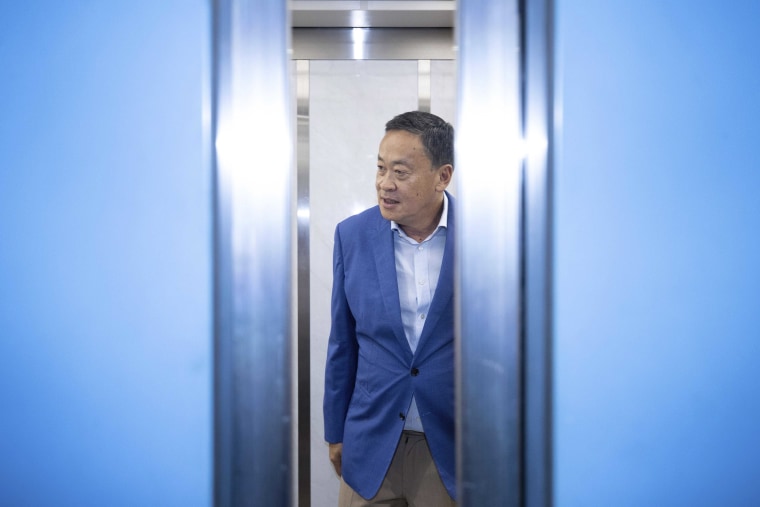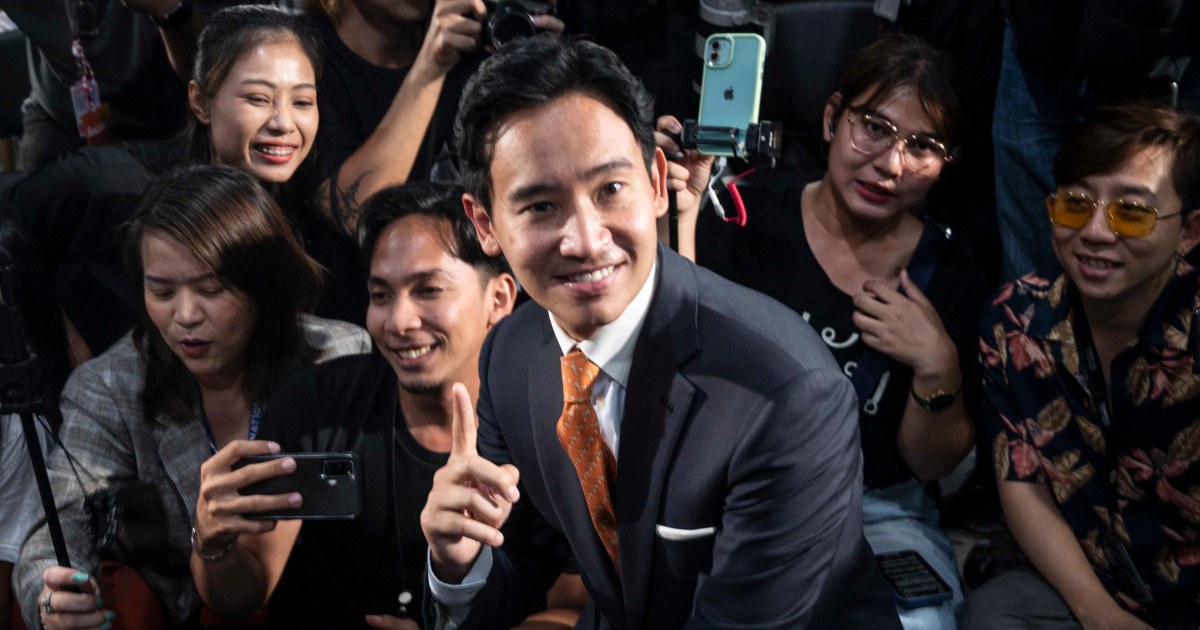Ballots counted on Monday showed voters in Thailand wanted change after nine years under a former general who seized power in a coup, with the main opposition parties easily outpacing other contenders in general elections.
The opposition Move Forward Party beat even optimistic projections and appeared poised to capture nearly all of the House’s 33 seats in the capital, Bangkok. Along with the Pheu Thai Party, the favored opposition group, Move Forward campaigned for reform of the military and the monarchy.
Move Forward brought those issues closer to the heart of its platform, earning it a more radical reputation. His open support for minor reforms of the monarchy, while winning over younger voters, antagonized conservatives committed to the royal institution.
Acting Prime Minister Prayuth Chan-ocha, who rose to power in a 2014 coup, was blamed for the stuttering economy, shortcomings in the pandemic response and thwarting democratic reforms, a point particularly sensitive among younger voters.
“These are people who say we want change,” said Saowanee T. Alexander, a professor at Ubon Ratchathani University in northeast Thailand. “They’re saying they couldn’t take it anymore. People are very frustrated. They want a change, and they could make it.»
With more than 99% of ballots counted early Monday, Move Forward appeared to have a slim lead over Pheu Thai, whose leaders admitted Sunday they may not finish on top after a voter turnout of around 39 million, or 75% of registered voters.
Move Forward leader Pita Limjaroenrat tweeted that he is ready to bring about change should he become the country’s 30th prime minister.
“Whether you agree or disagree with me, I will be your prime minister. Whether you voted for me or not, I will serve you,” he wrote.
Sunday’s winner is not assured of the right to form the new government. A joint session of the 500-seat House of Representatives with the 250-member Senate will take place in July to select the prime minister, a process widely seen as undemocratic because the military appointed senators, who will vote alongside elected lawmakers. .
Move Forward captured just over 24% of the popular vote for the 400 constituency seats in the House of Representatives and nearly 36% for seats allocated on a separate national ticket for 100 members elected by proportional representation.
Pheu Thai trailed slightly behind with just over 23% of the constituency seats and around 27% of the party list.
The recount of the constituency votes gave Move Forward 113 seats in the House and Pheu Thai 112, according to unofficial results Monday from the Election Commission.
Prayuth’s United Thai Nations Party ranked fifth in the constituency vote with nearly 9% of the total, but ranked third in the party preference count with close to 12% and 23 House seats. in the constituency vote.
All three parties were seen as most likely to lead a new government. Paetongtarn Shinawatra, the 36-year-old daughter of billionaire former prime minister Thaksin Shinawatra, was favored in opinion polls to be the country’s next leader.
Pita, a 42-year-old business leader for Move Forward, now looks like a likely prospect.
Pheu Thai won the most seats in the 2019 election. But its arch-rival, the military-backed Palang Pracharath Party, formed a coalition with Prayuth as prime minister and the unanimous support of conservative government-appointed members of the Senate. military after the Prayuth coup.

Alexander, from Ubon University, warned that the current situation remains «very unpredictable» and results could be unilaterally affected by the Electoral Commission, which previously disqualified opposition parties or undermined challenges to the conservative establishment.
He noted that the third-placed Bhumjaithai Party could be a «swing vote» as the combined seats of Move Forward and Pheu Thai may not be enough for a majority coalition. Bhumjaithai controls a large voting bloc in the northeast and helped bring the military-backed coalition to power.
Move Forward’s Pita is a likely target for what the opposition, from bitter experience, calls dirty tricks. Last week, a candidate from Palang Pracharath filed a complaint with the Election Commission and the National Anti-Corruption Commission alleging that Pita failed to include an equity stake in a statutory asset declaration. Pita denied any wrongdoing in the minor technical claim.
However, the leader of the Future Forward Party, the forerunner of Move Forward, lost his seat in Parliament for similar technical reasons. His party, also seen as a radical challenge to the military-backed royalist establishment, was dissolved.
Tyrell Haberkorn, a Thai studies scholar at the University of Wisconsin, said there was a chance street protests could flare up again if Move Forward met the same fate as its predecessor.
“Time is up for generals and their allies in the palace and the courts. The military can listen to the voters and resign gracefully, or throw the country into chaos,” Haberkorn said.

